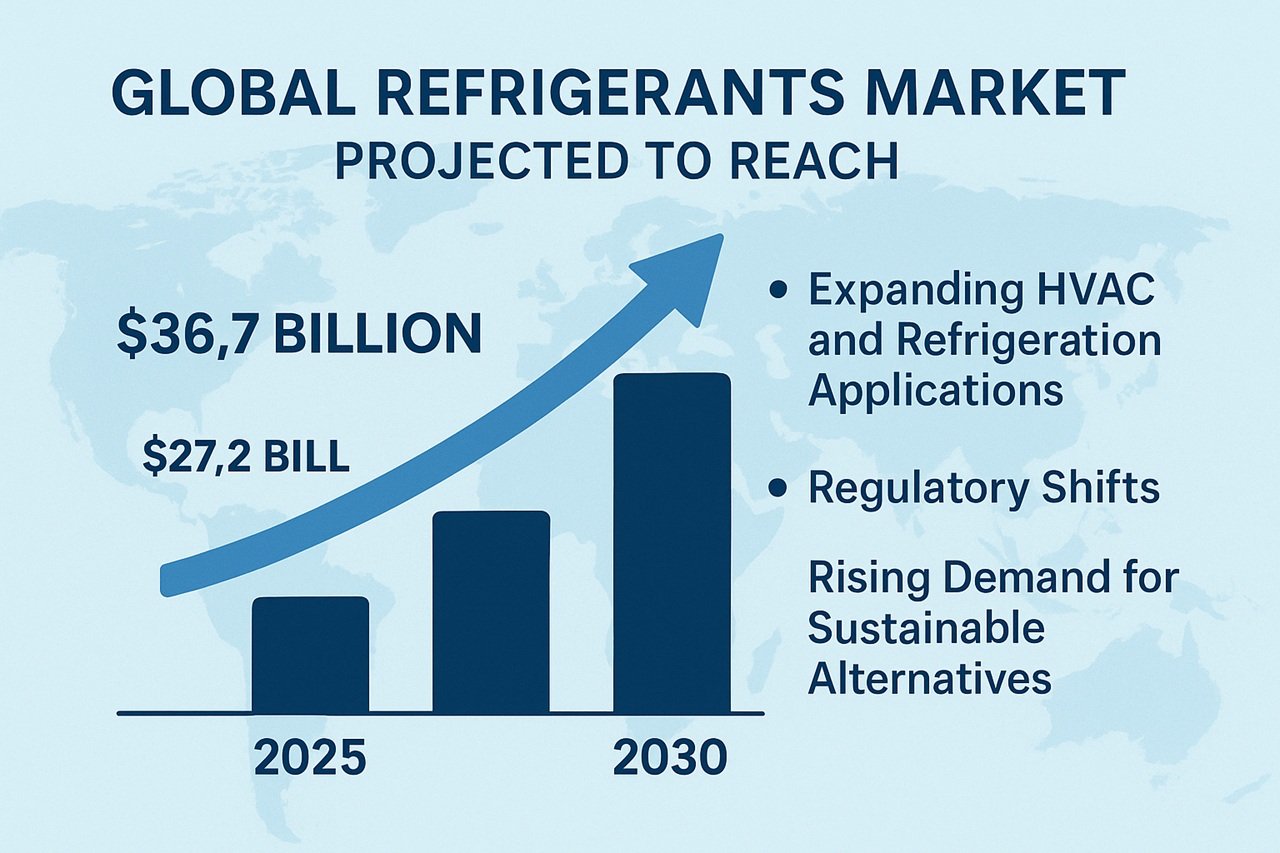Global refrigerants market projected to reach $36.7 billion by 2030
The global refrigerants market is expected to grow from $27.2 billion in 2025 to $36.7 billion by 2030, with a compound annual growth rate (CAGR) of 6.2%, according to a new report by BCC Research.
The study analyzes market trends across synthetic and natural refrigerants, key applications including air conditioning (AC) systems, refrigeration, mobile AC, and chillers, and regional performance in North America, Europe, Asia-Pacific, South America, and the Middle East and Africa. It highlights supply chain developments, environmental regulations, and ESG factors driving the transition to low-global-warming-potential (GWP) refrigerants.
Market growth is driven by rising demand for cooling systems due to urbanization, higher global temperatures, and the expansion of cold-chain logistics. Regulatory pressure under the Kigali Amendment and Montreal Protocol is accelerating the shift to sustainable refrigerants such as HFOs and natural alternatives like CO₂, ammonia, and propane.
In the pharmaceutical sector, the need for temperature-controlled storage and transport for vaccines and biologics is increasing. In the automotive industry, particularly with the growth of electric vehicles, there is a rising need for refrigerants in battery cooling and thermal management systems.
The Asia-Pacific region holds the largest market share, supported by industrial growth in China, India, Japan, and South Korea. The AC systems segment is expected to remain dominant through 2030, driven by demand in residential and commercial sectors.
Emerging startups in the field include Sunswap (UK), developing zero-emission solar-powered transport refrigeration units; Pascal (USA), working on low-pressure solid refrigerants; and Fenagy A/S (Denmark), producing large-scale CO₂ and hydrocarbon-based systems for industrial and district heating applications.
Leading manufacturers profiled in the report include A-Gas International Ltd., Arkema, AGC Inc., Daikin Industries Ltd., Dongyue Group, Gujarat Fluorochemicals Ltd., Honeywell International Inc., Linde plc, Orbia, and The Chemours Co.
